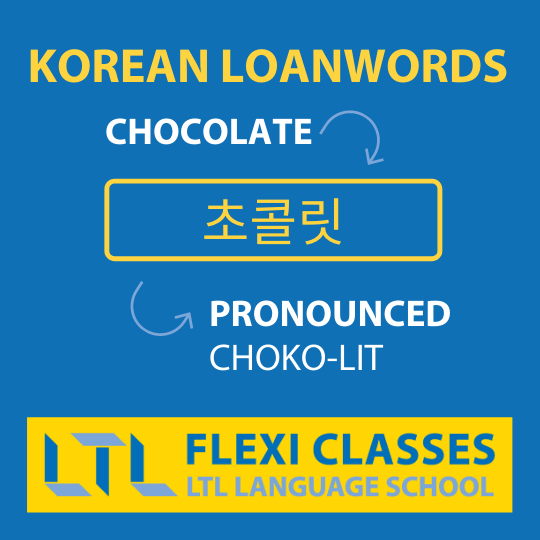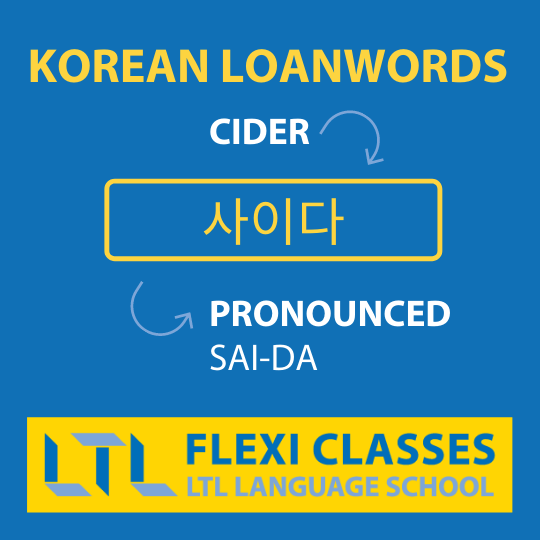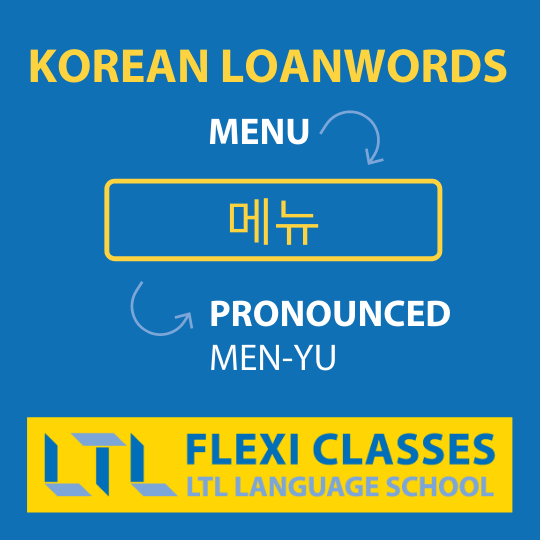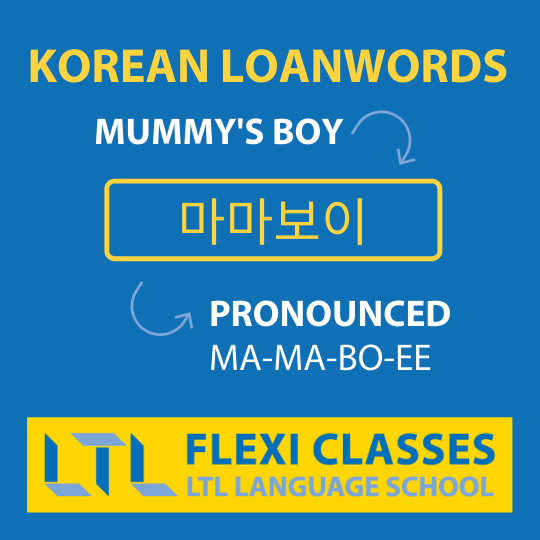63 Korean Words You Never Knew You Knew!
Korean Loanwords or Konglish // You Already Know Some Korean!
Korean Loanwords do really exist, and they are here to make your life learning Korean easier than you thought!
There is nothing clickbaity about the title! You genuinely already know a number of words in Korean (even if you’ve never studied Korean) thanks to Korean Loanwords or Konglish!
Today we are going to teach you 63 of those words! But first, to answer a question that’s probably on your mind…

WTF is Konglish you ask? Well, you’ve heard of Chinglish, right? (If not click that link).
The equation to Konglish is simple:
Konglish = Korean + English
It’s the same as Chinglish (with Chinese) and the same as Singlish (with the Singaporean accent of English).
However, whilst Chinglish generally relates to more humourous translations of English to Chinese, Singlish focuses on the accent… Konglish is essentially Korean Loanwords.
As Wikipedia states:
Konglish refers to English loanwords that have been appropriated into Korean and includes many English words that are used in ways that are not readily understandable to native English speakers.
For more of that check out the Konglish article on Wiki here.
So why are we teaching you Konglish?

Well, learning Korean Loanwords is actually an incredibly motivating way to learn a language as tricky as Korean.
By already discovering a number of words in a language completely different to English, it gives us a mental boost.
So today, to help you along your Korean journey we want to give you a foot up and get you believing it can be done.
We will split the words into categories below… so pick your favourite or better still, study them all!!
Remember when looking at the words, focus on the Romanization if you cannot read Korean, this will show you how to pronounce the script.
Korean Loanwords / Konglish || Food
Korean Loanwords / Konglish || Daily Life
Korean Loanwords / Konglish || Culture
Korean Loanwords / Konglish || Work Culture
Korean Loanwords / Konglish || Technology
Korean Loanwords / Konglish || Beauty & Fashion
Korean Loanwords / Konglish || Expressions
Korean Loanwords / Konglish || FAQs

The Korean Alphabet | A Complete and Definitive Guide to Hangul 한글
Learning Korean? Need to understand the Korean Alphabet? This complete guide will tell you everything about the 14 consonant letters and 10 vowels of Hangul
KOREAN LOANWORDS / KONGLISH – FOOD
Because food is more important than anything else… so obviously it comes first.
Korean cuisine is also something else! If you are yet to discover it, oh boy, you’re in for a treat.
Here are some Korean loanwords you already know in English!
| English | Korean | Romanji |
|---|---|---|
| Cake | 케이크 | keaikeu |
| Cider | 사이다 | saida |
| Chocolate | 초콜릿 | choko-lit |
| Dessert | 디저트 | dijeoteu |
| Hot Dog | 핫도그 | hat-dogeu |
| Ice Cream | 아이스크림 | iseu-keulim |
| Whipping Cream | 휘핑크림 | hwiping-keulim |
Chicken – 치킨 (chikin) refers to fried chicken. The recipe for fried chicken came from American soldiers who were stationed in Korea after the Second World War and now has become a staple in Korean culture.
Trust us, Korean’s LOVE fried Chicken!


This one deserves some extra attention…
One Shot! 원샷 won-syat – Ever been in a bar with your friends and you are the last one to finish their drink (yeah, me too)…!
This is an expression when you go out to drink with friends or colleagues and you have to finish your drink in one shot.
As you can see by the Romanization, the Korean is remarkably similar, if not identical to the English, “One Shot”!

Learn Korean on YouTube | 12 Channels to Follow 🌟
Here we will focus on how to learn Korean on YouTube, by listing some excellent channels you can utilise. There are some superb channels where you can spend hours learning Korean.
KOREAN LOANWORDS / KONGLISH – DAILY LIFE
| English | Korean | Romanji |
|---|---|---|
| Apartment | 아파트 | a-pa-teu |
| Ballpoint Pen | 볼펜 | bol-pen – shortened from Ballpoint Pen |
| Big Size | 빅 사이즈 | bik-sa-ee-jeu |
| Eco Bag / Bag for Life | 에코백 | eh-ko-baek |
| Health Club | 헬스클럽 | helseu-keulleop |
| Key Chain (Key Holder) | 키홀더 | ki-holdeo |
| Kitchen Towel | 키친타올 | kichin-taol |
| Klaxon | 크락션 | (keulag-syeon) |
| Menu | 메뉴 | menyu |
| Morning Call | 모닝콜 | mo-ning-kol |
| Nightclub | 나이트 | na e teu |
| Open Car / Convertible | 오픈카 | oh-peun-ka |
| Physical Contact (Skinship) | 스킨십 | seukin-sip |
| Plastic Bag / Vinyl Bag | 비닐백 | binil-baeg |
| Rear View Mirror / Back Mirror | 백미러 | baeg-mileo |
| Report | 리포트 | li-poteu |
| Ribbon | 리본 | li-bon |
| Running Machine / Treadmill | 러닝머신 | leo-ning-meo-shin |
| Sale | 세일 | seil |
| Screwdriver | 드라이버 | deulai-beo (as in ‘driver’) |
| Self Service | 셀프 | sel-peu (as in ‘self’) |
| Sun Cream | 선크림 | seon-keulim |
| Window (Eye) Shopping | 아이쇼핑 | ah-ee-syo-ping |
| Glue | 본드 | bond-deu (as in ‘glue’) |


KEY NOTE – In Korean the R sound does not exist so you’ll notice words like Running and Ribbon start with the L so they essentially sound like Lunning and Libbon in English.
- Solo – 솔로 (solo). This one is mostly used by the younger generation, when you’re single, you’re enjoying the “solo” life!
Taxi – 택시 (taegsi). Taxis are quite cheap in Korea but it is rare to find English speaking drivers, it might be useful to learn a few words in Korean to communicate with your driver.
This article is a good starting point!
KOREAN LOANWORDS / KONGLISH – CULTURE
Healing – 힐링 (hil-ling). The word “healing” refers to the action of resting. Koreans often refer to resting time as healing time. Lovely feeling, isn’t it?
| English | Korean | Romanji |
|---|---|---|
| Hoodied T-Shirt | 후드티 | hu-deu-ti |
| Pop Song | 팝송 | pap-song |
| Sign | 사인 | sain |
| Supermarket | 슈퍼 | syu-peo |
Studio (apartment) – 원룸 (won-lum, spoken as one room in English). It is very common in big cities like Busan or Seoul to have studio apartments for younger people to live in. These studios are composed of one room only, that’s why they are called “one room” in Korean.
Villa – 빌라 (billa). This is very specific to Korea. A villa is an apartment (often quite old fashioned) in smaller buildings and not particularly highly prised by younger/trendier people who prefer to live in Apartments 아파트 (aparteu) located in high rise buildings.
KOREAN LOANWORDS / KONGLISH – WORK CULTURE
Career Woman – 커리어우먼 (keorieo-umeon). Spoken almost exactly the same as the English version, a career woman is a woman who works, and lives to work, taking great pride in her career.
- Marketing – 마케팅 (maketing)
- Team – 팀 (tim)
Salary Man – 샐러리맨 (saelleoli-maen). This word is very common both in Japan and Korea. It refers to employed men in big cities with suits and briefcases, businessmen.


KOREAN LOANWORDS / KONGLISH – TECHNOLOGY
Time to get techy with the top Korean Loanwords in Tech.
| English | Korean | Romanji |
|---|---|---|
| Air Con | 에어컨 | aeo-con |
| Digital Camera | 디카 | di-ka |
| Remote Control | 리모컨 | rimo-keon |
| Selfie | 셀카 | selka |
| Smart/Hand Phone | 핸드폰 | haen-deu-pon |


KOREAN LOANWORDS / KONGLISH – BEAUTY & FASHION
Acetone – 아세톤 (a-seh-ton). What do you use to remove nail polish? Acetone! Nice and easy!

Burberry (the brand) – 버버리 (bo-bo-ri) – The most famous trench coats are from the brand Burberry. Because of this, the brand slipped into common language and is now a trench coat is a Burberry. A bit like how a tissue can be referred as a Kleenex.
Manicure – 매니큐어 (mae-ni-kyueo)
Panty – 팬티 (paen-ti). It’s worth nothing whilst in English Panties generally only refer to female underwear, in Korean that is not the case. 팬티 is gender neutral so chaps, don’t be worried about describing your underwear as Panties!
Sexy – 섹시 (seg-si). This one speaks for itself!
KOREAN LOANWORDS / KONGLISH – EXPRESSIONS
Comfort Food – 소울푸드 (soul-pudeu, spoken as soul food in English). This concept is very important to Koreans, as food is a huge part of their life. Comfort food is food for the soul, or “soul food”
Dutch Pay (Going Dutch) – 더치 페이 (deo-chi-peh-ee). When the group split the bill between them, meaning everyone pays their own share.
It’s worth noting this is not very common in Korea. Usually, the elder person/people will pay for everyone.
FIGHTING – 파이팅 (pai-ting). Not to fight, but kind of like 加油 in Chinese, the person is trying to cheer you up, encouraging you to do great. The fighting isn’t seen as the physical act to fight, but as in fighting through difficult moments to achieve something great. Learning Korean? FIGHTING!! You got this.
It’s a very common expression in daily life.
Visual – 비주얼 (bi-ju-al). Usually when we say someone is a “visual” it means they are good-looking or the most good-looking person in a group.
Working Mum – 워킹맘 (woking-mam). While Korea is still a very traditional and Confucian society, it is not rare to find working mums nowadays.
Mummy’s Boy – 마마보이 (ma-ma-bo-ee)


There we have it 63 words in Korean you already knew! Not so bad is it?
DID YOU SPOT || some words in Korean are taken directly from English but in daily usage their pronunciation was too long, so Koreans cut the words in half to make it easier
Drop us a comment below with any that you found.

14 of the Best Korean Streaming Platforms 🍿
Where to watch Korean dramas? That is definitely a question we all asked ourselves! We listed 12 of the best Korean streaming platforms for you.
BONUS || if you love learning about loanwords in other languages why not check out…
- Our guide to 20+ loanwords in Russian
- Some of our favourite Chinese loanwords
- 30+ words borrowed from Chinese and used in everyday English
KOREAN LOANWORDS / KONGLISH || FAQs
Are there some English words also used in Korean?
Yes and more than you probably think.
Learning Korean Loanwords is actually an incredibly motivating way to learn a language as tricky as Korean. By already discovering a number of words in a language completely different to English, it gives us a mental boost.
It proves to us learning languages like Korean is absolutely not impossible, and that there are similarities, even if the two languages differ so much.
What is Konglish?
Effectively it’s Korea and English pushed together:
Korean + English = Konglish.
Konglish refers to English loanwords that have been appropriated into Korean and includes many English words that are used in ways that are not readily understandable to native English speakers.
What does 파이팅 mean in English?
It’s spoken as pai-ting. This is not to fight, but kind of like 加油 in Chinese, the person is trying to cheer you up, encouraging you to do great.
‘Fighting’ isn’t seen as the physical act of fighting, but as in fighting through difficult moments to achieve something great. Learning Korean? FIGHTING!! You got this.
How do you say Sexy in Korean?
섹시 (seg-si) – almost exactly the same as English!
Is Taxi the same in Korean?
Essentially yes. Taxi in Korean is 택시 (taeg-si).
How do you say Mummy’s Boy in Korean?
Mummy’s Boy is actually spoken almost exactly the same as in English:
마마보이 (ma-ma-bo-ee)
Want More From LTL?
FANCY LEARNING KOREAN? Check out our online Korean courses here.
We offer a 7-day free trial to all online students where you can study Korean 24/7.
Want to study Korean in Korea instead? Our Korean courses in Seoul can either be taken in small groups of no more than 5 students or individually for a more tailored experience.
We even offer incredible homestay experiences in Seoul too.
To top it all off, it certainly doesn’t end with Korean. Check out the other languages we teach 👇🏻










8 comments
HAha these are super handy
Glad you liked it Rosie
Love articles like this!
Thanks so much!
Whoa! Some unexpected ones!
It's great isn't it!
Youre so cool! These Korean posts are great for beginners like me
Absolutely pleasure Bruce!